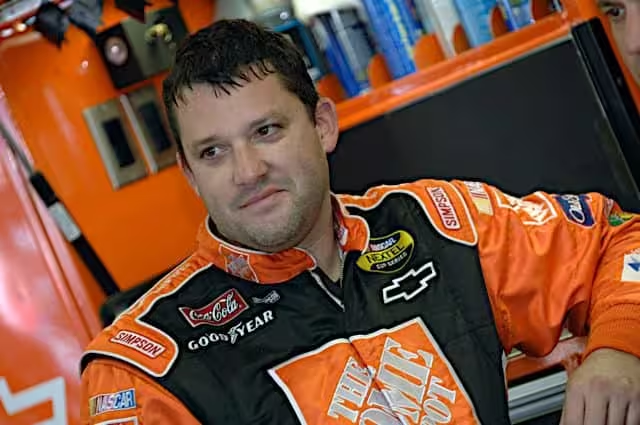In August, it was announced that Connor Zilisch would be joining JR Motorsports full time in the NASCAR Xfinity Series for 2025.
Such a revelation no doubt put some significant expectations on the teenage racer. But Zilisch himself has already amplified those expectations tenfold since then by winning his first Xfinity race from the pole at Watkins Glen International.
Now come the inevitable comparisons. Is he the next Kyle Larson, Jeff Gordon or any other successful young driver? In our instant gratification society, it’s nearly impossible to dismiss the notion that young drivers should win early and often. Such is the case, even though they would benefit from not being on such a short leash without a white-hot spotlight on them.
Undoubtedly, the experience that comes with time will make any racer better, but that’s just not how it works anymore. Rookies who don’t win are often labeled as a bust before the ink dries on their first contract. However, it wasn’t always that way.
Young newcomers winning in NASCAR, especially NASCAR Cup Series races, is a relatively new phenomenon. It’s not that Cup rookies in the past weren’t any good. Unproven drivers simply weren’t handed top level rides like they are now. The best teams hired established veterans. From 1982 though 1998, only once (Davey Allison in 1987) did a driver win during their first full-time season.
It took one hire by Rick Hendrick to change rookie expectations.
Hendrick lured a 20-year-old Jeff Gordon away from the Ford pipeline team of Bill Davis Racing in the Xfinity (then Busch) Series. Gordon was a good prospect but, with just three wins in that division, he had nowhere near the expectations that similar drivers are saddled with now.
Even a great such as Gordon wasn’t great right away. He tore up a lot of rainbow-colored racecars during his rookie campaign, and he didn’t win a race that year. But once Gordon figured it out, he started winning, and he won a lot.
Like any good idea, it spawned a slew of copycats. Everyone wanted to find and hire the next Jeff Gordon. Newcomers like Mike Skinner and Kenny Irwin Jr. found themselves in top rides, but in comparison to Gordon, the results weren’t satisfactory. It begged the question if such a practice really was the best long-term solution.
Then in 1999, Tony Stewart went Cup racing courtesy of Joe Gibbs Racing. Stewart, while not extraordinarily young, was a rookie nonetheless, but…
Click Here to Read the Full Original Article at …

